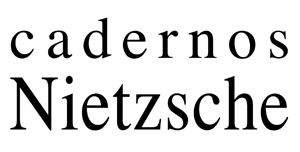Abstract
The purpose of this article is to show the contribution of Nietzsche to the revolution in the practices of the scenario that takes place in the 20th century, as well as its relevance as a passionate critic for the potential of an art form that he felt was interpreted in his time in a diminished way. From his study of Greek theater in his workThe Birth of Tragedy,he underlines the importance that in the ancient tragedy had its staging, and that went beyond the text written by its author. It offers therefore an analysis of the idea of theater as art, which is consubstantial in three dimensions: the actor, the poet or writer of the text and the viewer. Nietzsche defends the specificity of these three roles for every theatrical enterprise and the philosophical sense that theater has as an authentic artistic form. The article concludes by showing the acceptance of Nietzsche's theatrical thought in authors such as August Strindberg, George Bernard Shaw or Eugene O'Neill, who sought new forms and new meanings for their art.
Keywords
Theater; Nietzsche; Philosophy; Art; Staging
